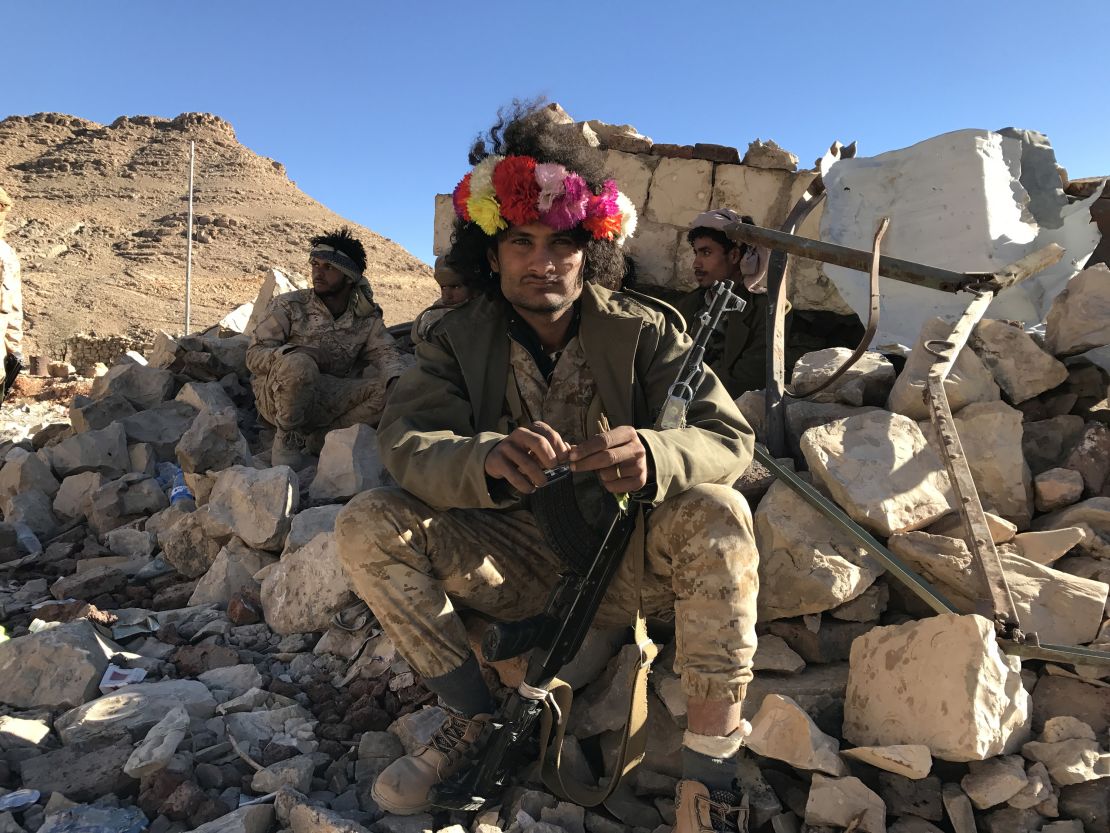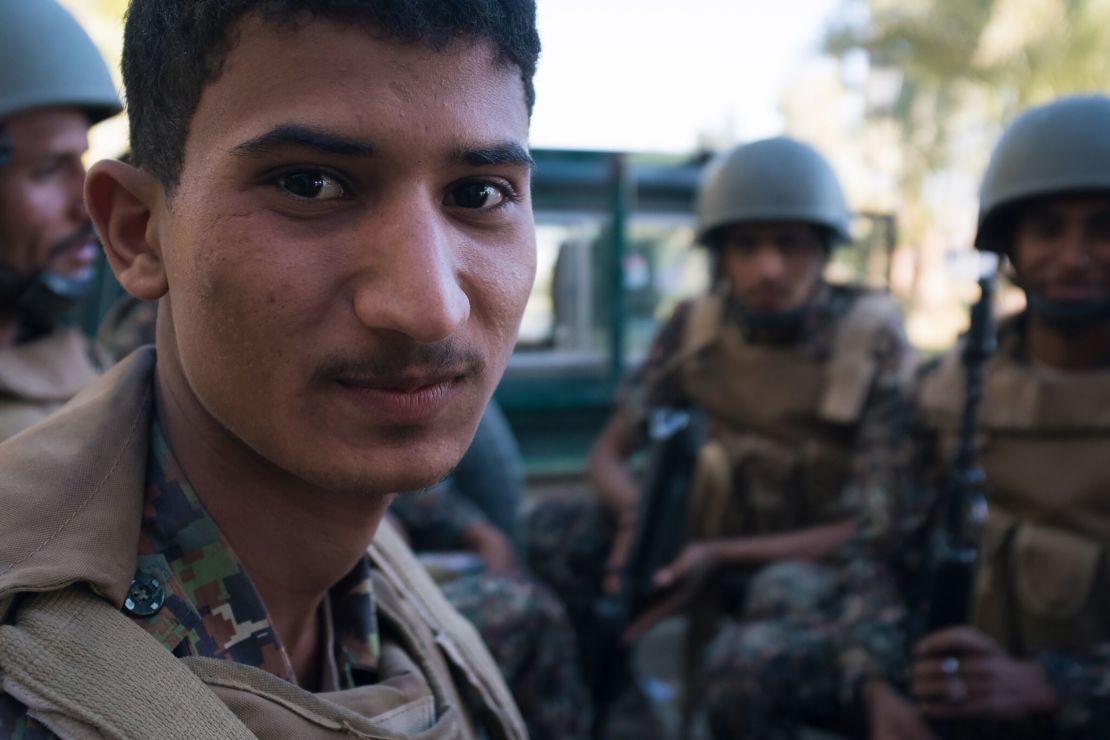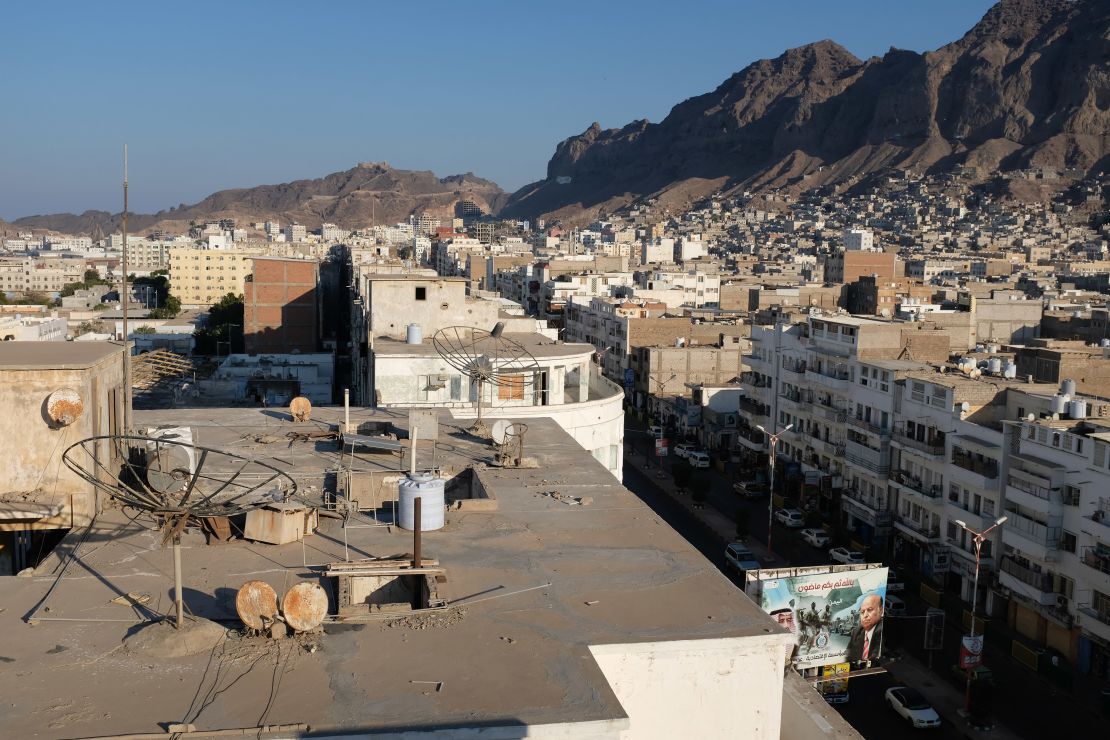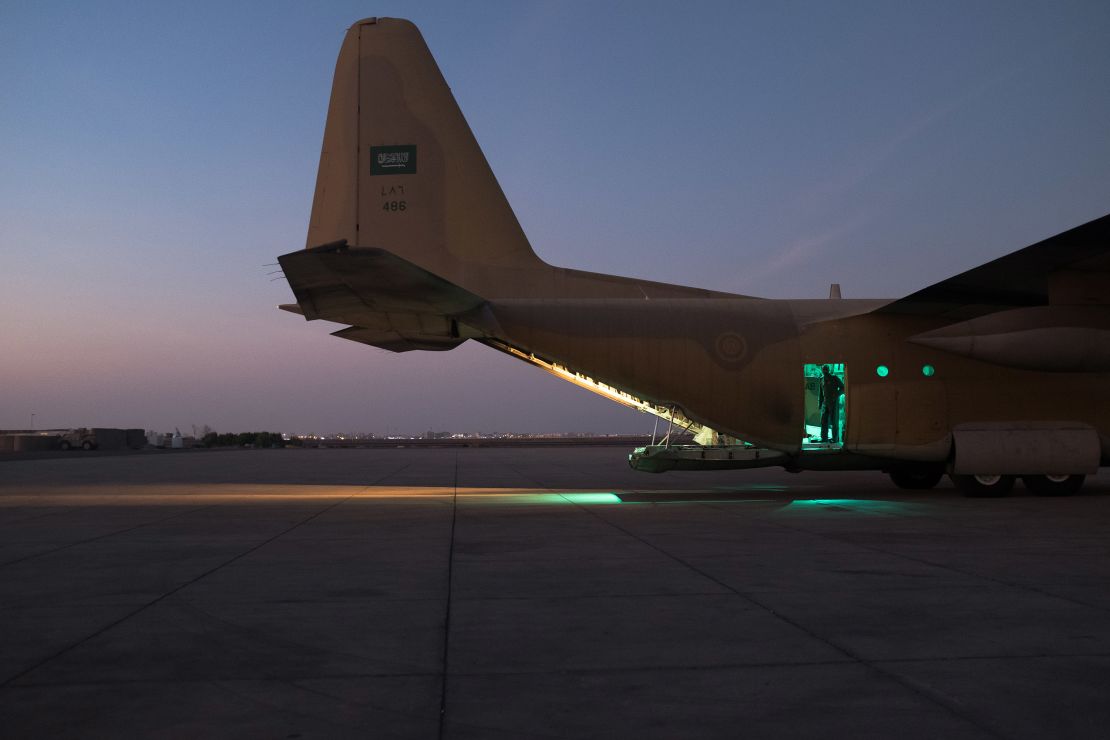Yemen’s civil war has raged for three years now — famine is imminent and 10,000 civilians have died. For the Saudi-backed government forces, this treacherous mountainside is the frontline in their fight against the Houthi rebels.
From atop al-Manara mountain, just east of the Yemeni capital Sanaa, it is possible to think that fighting here might be over soon.
The strategic high ground dominates surrounding Houthi territory below. A swift advance from here could dislodge the Iranian-backed rebels, either pushing them out of the capital or into meaningful peace talks.
But that view would overlook the complexities of Yemen’s war, as well as the paucity of military hardware that we witnessed on the hours-long drive during our bone-shaking?ascent up the 8,500-foot-high plateau.?

The mountaintop is scattered with a rocket launcher here, an armored vehicle there, soldiers camped in precarious tents clinging to the rock face above precipitous drops, and donkeys used to resupply some of the more far-flung front line outposts.??
Yemen’s government troops are not a vast military force capable of a swift decapitation of their enemy, but an army holding the high ground for military necessity, advancing when and where they can.?
I have been brought to the war-torn country by Yemen’s information minister and the government army’s regional commander. Their coalition partners, Saudi Arabia and the United Arab Emirates, facilitated the trip.?
All of the military, civilian and coalition representatives we met in government-controlled Yemen insist that they have no intention of racing down their military outposts on the high ground?and capturing the rebel-held capital of Sanaa.
In addition to Sanaa, the Houthis control much of the country’s north.?
It’s not the lack of military hardware that holds back the government, they say, but a reluctance to crush the Houthis with overwhelming military force. The government is convinced that it is popular in Sanaa, and is wary that an aggressive military campaign, similar to the Iraqi army’s fight to oust ISIS in Mosul, would diminish that support. That, in turn, would hinder the ability to reunify Yemen. ?
Yemen and its separatists?
There is, of course, no guarantee that the government can achieve reunification. Further south, government-aligned southern separatists bridle at sharing power with a northern government, and have recently renewed clashes with the internationally recognized government of President Abdu Rabu Mansour Hadi.
Yemen has been through three civil wars that pitted North against South over the past four decades. It was a little over a quarter century ago when the country united north and south.
Today, the government forces we are with outside the capital are fighting Houthis and some al Qaeda. In the south, where fighting has broken out around the port city of Aden, the situation is more complicated.

?After the Houthis first advanced on government-controlled Aden in 2015, it was the southern separatists who first restored some semblance of stability to the city and expelled the rebels from the international airport.
Over the following two years, the separatists forged an uneasy alliance with Hadi’s government, and the Saudi-Emirati coalition backing it.
Several southern separatists I spoke to while in Aden were frustrated with Hadi’s government, which, they said, had them do all the fighting and offered little in return.?
An alliance between major parties in coalition-controlled Yemen is vital if Hadi’s government is going to fight from its bases in the south and the east to pressure the Houthis in the north and center. But the southern separatists we talked to sounded unwilling to fight northward through Houthi lines for territory that they may never call their own.
Yemeni build-up?
The Arab spring in 2011 can be considered the starting point of Yemen’s latest political saga. Longtime strongman Ali Abdullah Saleh, whose presidency presided over the unification of north and south in 1990, was nearly assassinated. In 2012, the man who famously described running Yemen as “dancing on the heads of snakes” was ousted from power.
Hadi was elected to the presidency. But by then, the centrifugal forces pulling the country apart were too strong for the new president to control. The near mortally injured Saleh had recovered from the 2011 assassination attempt and added his leverage to the country’s unraveling.?
Saleh then forged an alliance with his previous nemeses, the Houthis, who belong to the same minority Zaidi sect of Shia Islam as the former president. From their traditional base in the northern mountains, the rebel group has long aspired to expand its power. The Saleh-Houthi pact sowed chaos, enabling a rebel takeover of the capital and much of the rest of the country.

Several months later, the group forced Hadi to flee south, to Yemen’s second city, Aden, and ultimately out of the country with the help of his Saudi sponsors.
Hadi remains in Riyadh and has yet to return, but his Prime Minister and other officials have established a de facto capital in Aden, from where they try to run the country with the help of the Saudis and Emiratis.
It sounds, perhaps, more capable than it is. The Prime Minister told me the country’s shaky security means he can rarely get more than 21 of his 36 ministers together for cabinet meetings in his highly fortified residence.
Even so, he told me, they are defeating al Qaeda, which controls swathes of Yemen, with the help of the United States. He said they have been able to stabilize the weak Yemeni currency, the riyal, with the help of Saudi Arabia.??
He added that the Houthis have been undermining the riyal by printing the currency on illegal printing presses smuggled into the country with the help of Iran.
Yemen as it stands?
That some southern separatists are clashing with the government is perhaps an indication that the war has entered a more focused, albeit not final, phase toward the Houthis’ defeat.?
The government claims to control 85% of Yemeni territory. However, the Houthis control several large population centers, including the capital, as well as 50% to 60% of the country’s resources, according to the prime minister.
Former President Saleh’s death last November – which coalition officials say was orchestrated by Iran – may also be contributing to current separatist tensions.??????????????

Even while Saleh was backing the Houthis, the Saudis figured that he would ultimately switch allegiance to his former Saudi allies. A Saudi official said they refrained from trying to kill the former president, seeing in him a useful figure in helping unify support for the government.?
They may have been right. Very soon after Saleh began speaking positively about the government, he was killed. Houthis were quick to claim responsibility for his assassination.
Coalition officials I talked to believe Saleh’s death will leave the Houthis without the political cover his large GPO party gave them. They believe it makes the Houthis vulnerable, as they are a minority religious rebel force and a broad-based political movement, but not a concentrated party.?
Still, many southern separatists rejoiced at Saleh’s death. His years in power had subjected the group to hardship.
Perhaps a bigger blow to the coalition, particularly the Emiratis who have been giving sanctuary to Saleh’s son for several years, is that many in the south see no role for any of Saleh’s family or his forces.
The fraying of ties between the separatists and the government?presents yet another division that hampers Yemen’s path to peace. It explains why some Yemenis are not only angry with the Houthis’ backers, Iran, but also with the government’s coalition partners, Saudi Arabia and the UAE, which they see as making it harder for Yemenis to find compromise.

As we drove out of the desert town of Mar’ib toward al-Manara mountain, our driver, a former policeman who fled his hometown when Houthis took control, told us Yemenis alone cannot be blamed for failing to find peace.?
He was part of the government delegation taking us to the front lines. In his view, the country’s branch of the Muslim Brotherhood was the single most powerful political group in Yemen.?
Without the Muslim Brotherhood’s support, he said, negotiating a final peace deal could be near impossible.
Both the Saudis and the Emiratis are having a hard time accepting that the Brotherhood would have a powerful role in Yemen’s future. Saudi Arabia and the UAE view the Brotherhood as a stepping stone to al Qaeda.?
In short, our driver was telling us that while the government’s coalition partners were entirely necessary to defeating the Houthis, they also posed a hurdle to peace.
His assessment may have been an oversimplification. Still, the Brotherhood’s de facto leader General Ali Mohsin, commander of the first armored division and one of the most powerful men in Yemen under Saleh’s rule, has been spending a lot of time in Riyadh recently, talking with Saudi officials.
A growing liability??
The Saudis want the war in Yemen wrapped up fast; a failed state there exploited by al Qaeda and ISIS is a direct threat to their own stability.
In recent months, the need to find peace has become even more pressing. Late last year, the Houthis began a campaign of launching Iranian-made ballistic missiles at Riyadh and other Saudi cities, risking huge civilian casualties.?
The United Nations says Iran has not done enough to stop the ballistic missiles from being transferred either directly or indirectly to Houthi control.
The Houthis have also threatened international shipping in the Red Sea, through which 10% of global maritime trade passes. The Saudis say they have destroyed Houthi attack boats equipped with Iranian military hardware.
Yemen’s war is having a pernicious effect on regional stability, raising tensions with Tehran as well as threatening millions of people with starvation and disease.
Thousands of civilians have already been killed in the fighting, millions are starving and many survivors are also at risk from?cholera, aid agencies say.
From al-Manara mountain, it is easy to have a clear view of the battlefield ahead. But it is far harder to see how the battle will be fought and peace finally won.


